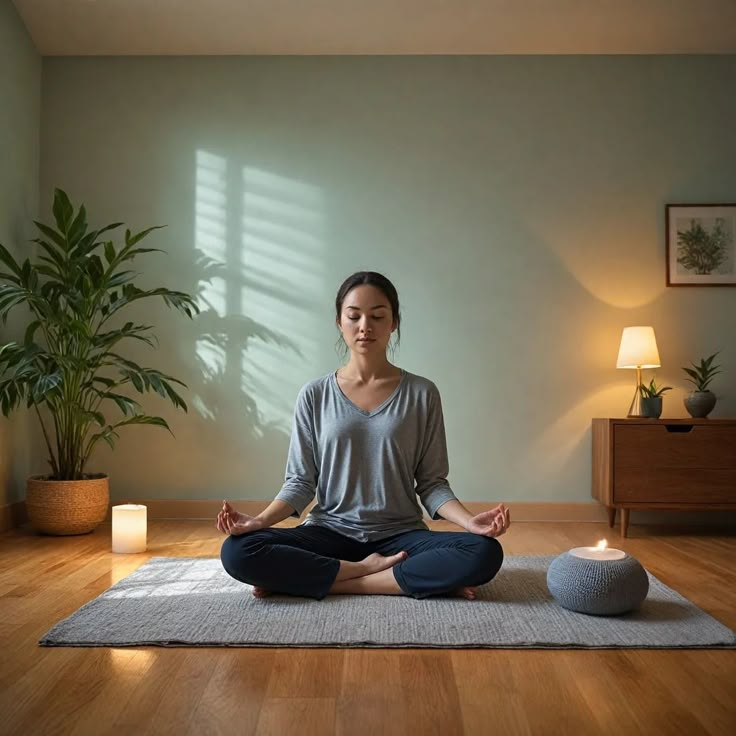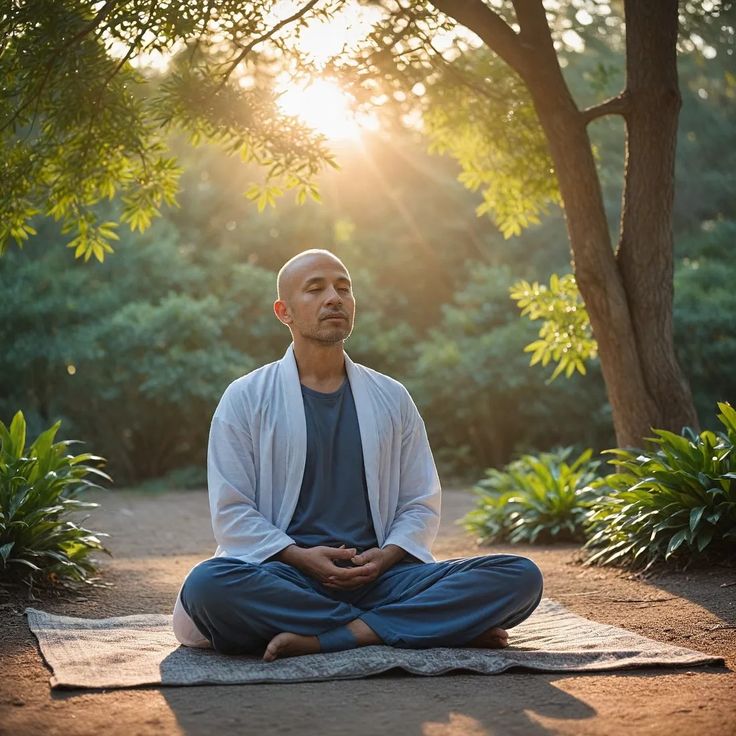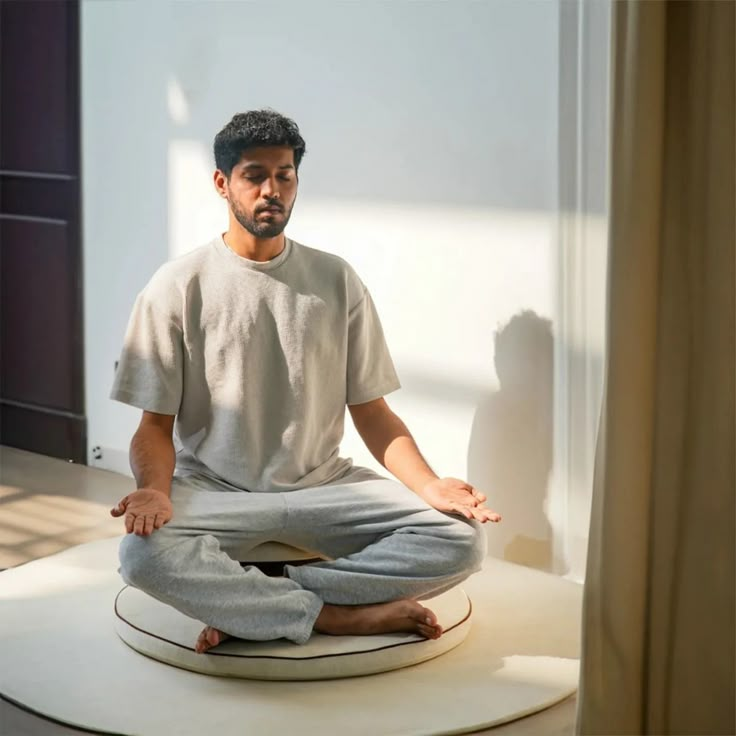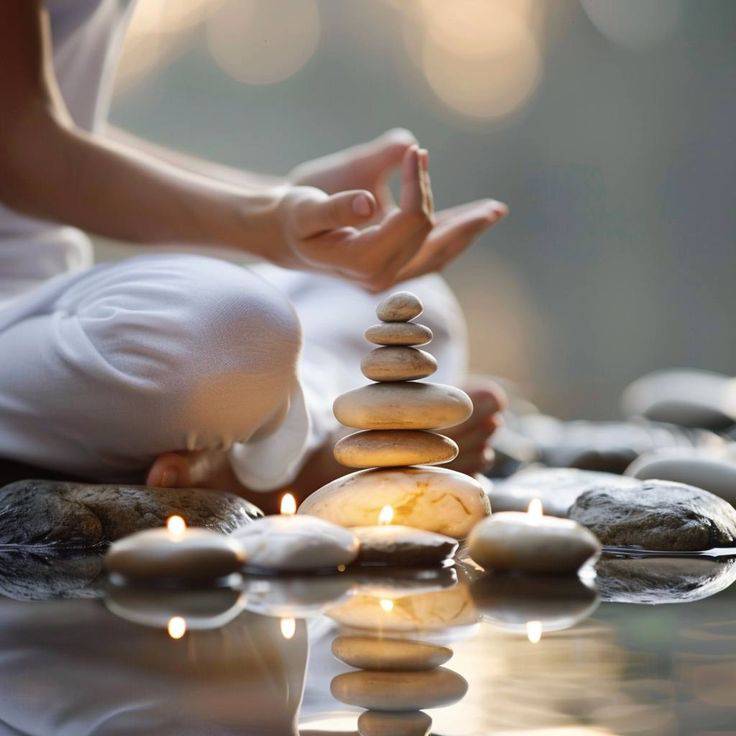
Inner Peace And Longevity, Imagine this: Nestled in the undulating hills of Okinawa, you are in a small Japanese town. In her yard, spry and cheery, a 100-year-old woman is making tea.
Asked about her longevity secret, she does not bring up a miraculous drug, a demanding exercise program, or a tight diet. Rather, she just states, “Every day I wake up thankful, I exercise my body, and I laugh with friends.”
It seems too simple to be true, doesn’t it? But research is starting to support what societies all around have long known: longevity isn’t only about nutrition and exercise; it’s also about inner calm, a strong feeling of purpose, and significant relationships.
This post will explore doable, scientifically supported ways to assist you in aging effectively by fostering not only your body but also your mind and spirit.
Aging is a multifaceted process shaped by genetics, lifestyle, and believe it or not your attitude. Research indicates that by shortening telomeres, the protective caps on the ends of our DNA strands, stress speeds cellular aging.
Shorter telomeres are associated with shorter lifespans and a higher risk of chronic illness. Conversely, techniques that foster inner peace, such as meditation, thankfulness, and social connection can really hasten this process.
Nobel Prize-winning researcher Dr. Elizabeth Blackburn discovered that stress reduction and mindfulness might help to lengthen telomeres, hence preserving your cells younger for longer. Having a peaceful mind not only feels good, but also contributes to biological youth.
All supported by research, let’s look at several excellent strategies to develop inner tranquility and longevity.

Inner Peace And Longevity, Meditation is a scientifically validated method to increase lifetime, not only for monks on mountaintops. A UCLA study discovered that, as individuals age, long-term meditators have healthier, more conserved brains than non-meditators. Ten minutes of daily meditation can help lessen inflammation, increase immunological function, and reduce stress.
Consider this: Devote 10 minutes every morning to either guided meditation or deep breathing. For newcomers, apps like Headspace or Calm could be quite helpful. Try walking meditation in nature if you believe sitting still is unattainable.

Are you looking for a quick mood lift? Maintain a thankful notebook.
Harvard research indicates that recording three items you appreciate every day will help you sleep better, reduce stress, and enhance heart health.
Gratitude lowers cortisol (the stress hormone) and increases lifetime by helping you to change your attention from what is wrong to what is right.
Given their age, it is only natural that centenarians frequently express profound thankfulness for the basic joys of life.
Consider this: Before going to sleep each night, write down three things you appreciate. They can be as little as “a nice cup of coffee” or as large as “my encouraging family.”
Inner Peace And Longevity, What are some of the most reliable indicators of longevity? One of the most reliable indicators of longevity is having strong social connections.
Over the course of more than 80 years, the Harvard Study of Adult Development revealed that personal relationships hold greater significance for long-term health than genetics.
On the other hand, loneliness is associated with a shortened lifespan and an increased risk of illnesses such as Alzheimer’s.
Try this: Make in-person relationships your top priority. Volunteer, join a local community group, or call a buddy. A virtual check-in with a loved one can even help if you are unable to meet in person.


A major influence in why Okinawans live so long is ikigai, a Japanese word meaning “reason for being.” Whether through employment, hobbies, or altruism, having a feeling of purpose can help you live longer.
Research indicates that those with a strong sense of purpose have lower stress hormones, improved heart health, and even fewer chances of cognitive loss.
Give this challenge a shot: Consider, “What brings me joy?” Consider asking yourself, “What brings me joy?” and “How can I help the world?” Find something that makes you want to get out of bed in the morning, whether it be gardening, teaching, or acquiring a new skill.
Inner Peace And Longevity, Time spent outdoors greatly benefits mental and physical well-being. Studies indicate that spending only twenty minutes in a green area can improve mood, reduce stress, and lower blood pressure.
Popular in Japan, forest bathing is just immersing oneself in nature, no hiking necessary. Fresh air, natural sounds, and plants all help reduce cortisol levels and foster inner calm.
Consider this: Walk regularly in a park, garden, or along the shore. If you live in a city, bring plants into your house to create a peaceful atmosphere.

Are you hoping to live longer? Sleep well. Everything from weight increase to cognitive deterioration is connected to poor sleep. During deep sleep, the body heals itself, flushes toxins from the brain, and maintains a robust immune system.
Consider this: Strive for 7 to 9 hours of nightly sleep. Establish a calming night ritual, stay away from electronics before bed, and keep your bedroom dark and cool. A cup of chamomile tea or reading a book can indicate to your body that it’s time to wind down.

Though how we age is mostly in our control, aging is unavoidable.
We can hasten the aging process and increase the number of healthy, joyful years in our life by adopting mindfulness, thankfulness, close social ties, purpose, nature, and restful sleep.
The key to living long is not crazy diets or pricey supplements but rather developing inner calm and making little, regular decisions that feed your body and mind. The good news is that it’s never too late to start.
What’s one thing you can do right now to add more tranquility to your life?
Perhaps it’s phoning a buddy, going outside for some fresh air, or just pausing to appreciate the present by taking a deep breath. Your future self will appreciate it.